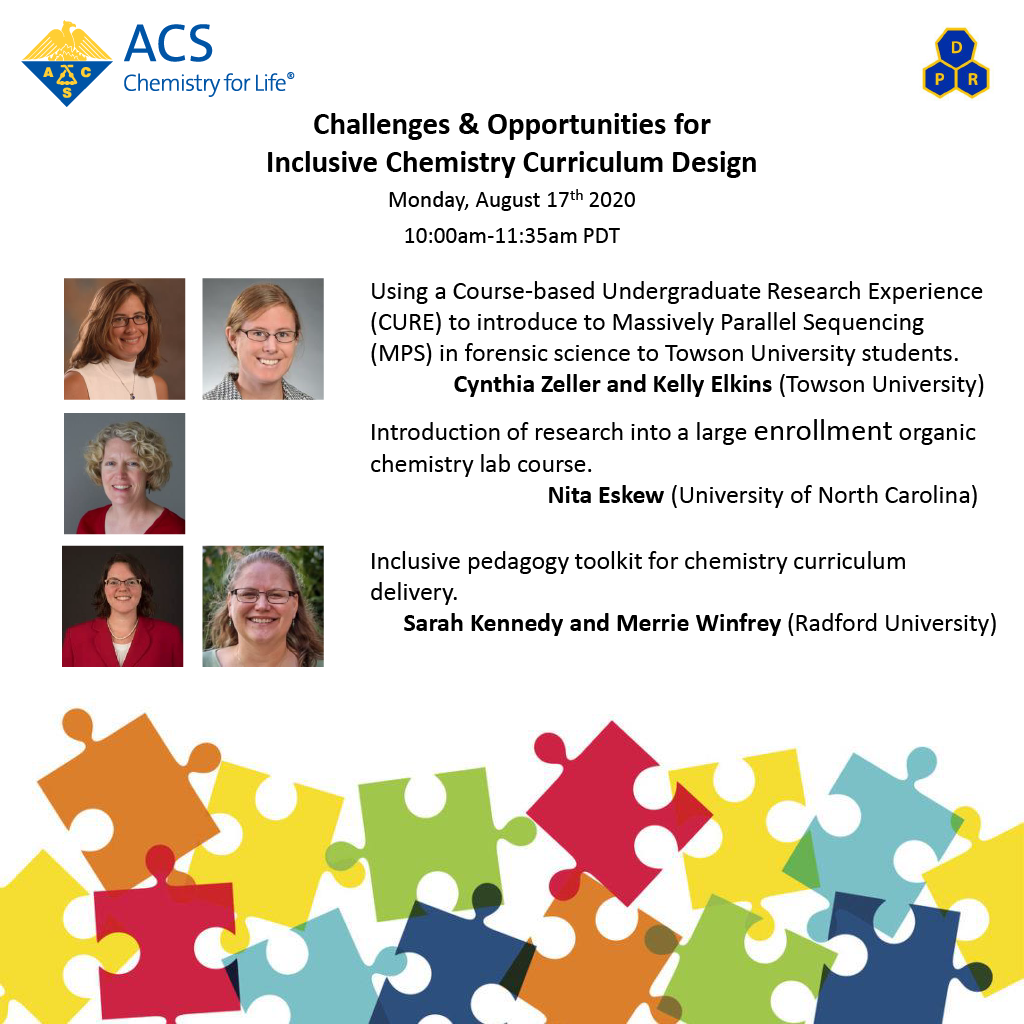 High impact practices such as undergraduate research and project-based learning are known to engage all students, but are especially impactful for non-majority students. Inclusive efforts to increase retention and success of all students through curriculum redesign are underway at many institutes of higher education. In this session, inclusion and diversity experts will discuss the imperative for pedagogical change and provide the skills and framework for building an inclusive classroom, such as developing a scaffolded syllabus, writing clear learning objectives, using engaging first-day activities, and using diverse assessments. Chemical educators will share their expertise and experiences including but not limited to developing project-based curricula, using backwards course design, improving success with diverse populations, engaging students in course-based undergraduate research experiences (CUREs), communicating with large courses, and developing future teacher-scholars through Teacher-Scholar postdocs. We welcome educators to share their inclusive pedagogy ideas and implementation challenges in this session.
High impact practices such as undergraduate research and project-based learning are known to engage all students, but are especially impactful for non-majority students. Inclusive efforts to increase retention and success of all students through curriculum redesign are underway at many institutes of higher education. In this session, inclusion and diversity experts will discuss the imperative for pedagogical change and provide the skills and framework for building an inclusive classroom, such as developing a scaffolded syllabus, writing clear learning objectives, using engaging first-day activities, and using diverse assessments. Chemical educators will share their expertise and experiences including but not limited to developing project-based curricula, using backwards course design, improving success with diverse populations, engaging students in course-based undergraduate research experiences (CUREs), communicating with large courses, and developing future teacher-scholars through Teacher-Scholar postdocs. We welcome educators to share their inclusive pedagogy ideas and implementation challenges in this session.
PROF Sponsored Session – Cosponsored by CHED
Hosted by Kelly Elkins
Event Timeslots (1)
Monday August 17, 2020
-
High impact practices such as undergraduate research and project-based learning are known to engage all students, but are especially impactful for non-majority students. Inclusive efforts to increase retention and success of all students through curriculum redesign are underway at many institutes of higher education. In this session, inclusion and diversity experts will discuss the imperative for pedagogical change and provide the skills and framework for building an inclusive classroom, such as developing a scaffolded syllabus, writing clear learning objectives, using engaging first-day activities, and using diverse assessments. Chemical educators will share their expertise and experiences including but not limited to developing project-based curricula, using backwards course design, improving success with diverse populations, engaging students in course-based undergraduate research experiences (CUREs), communicating with large courses, and developing future teacher-scholars through Teacher-Scholar postdocs. We welcome educators to share their inclusive pedagogy ideas and implementation challenges in this session.

